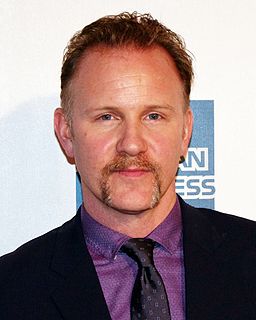A Quote by Rush Limbaugh
You can see signs of a roaring economy. You can sense economic growth. You know it's happening. You're part of it. It is affecting you. Seventy-five percent of Americans think the government is corrupt.
Related Quotes
When you've got a economy in which 40 percent of economic growth is happening in the financial sector, that turns out that was all an illusion, that it wasn't growth based on real products and services, but just a bunch of paper shuffling and a house of cards, then what's gonna emerge, at some point, is a sense of resentment, a sense that the system's rigged, and it's not working for ordinary people. And it's not fulfilling the basic American dream.
I'm not expecting a big sell-off but I do think that if we don't have a move toward economic growth and policies that will promote economic growth and get us out of this 2 percent world - we really need to see 4 percent, 5 percent - to see jobs created, and if we don't see that longer-term, yeah the market will sell-off...[but] I do think things are getting better. It's just been very slow.
Seventy-five years. That's how much time you get if you're lucky. Seventy-five years. Seventy-five winters, seventy-five springtimes, seventy-five summers, and seventy-five autumns. When you look at it like that, it's not a lot of time, is it? Don't waste them. Get your head out of the rat race and forget about the superficial things that pre-occupy your existence and get back to what's important now.
I think the reason that the Trump economic agenda is beneficial is, he is doing the right things. He wants to see growth, he wants to see to lower taxes, he wants to see this cash pile sitting outside the US return to the US. All of these things I think will be good for the US economy, and as I've said, if the US economy grows, the global economy benefits hugely.
Government is taking 40 percent of the GDP. And that's at the state, local and federal level. President Obama has taken government spending at the federal level from 20 percent to 25 percent. Look, at some point, you cease being a free economy, and you become a government economy. And we've got to stop that.
If we had 3 percent growth, which is what we're trying to get to, what we're at, by the way, right now, we're trying to maintain that 3 percent growth. If we had been at 3 percent growth over the last ten years, the budget very nearly would be balanced in 2017. That's how big a difference it makes when you grow the American economy that additional 1 percent over ten years.
In 1994, Estonia became the first European country to adopt a flat tax, and its 26 percent flat tax dramatically energized what had been a faltering economy. Before adopting the flat tax, the Estonian economy was literally shrinking. In the eight years after 1994, Estonia experienced real economic growth - averaging 5.2 percent per year.



































